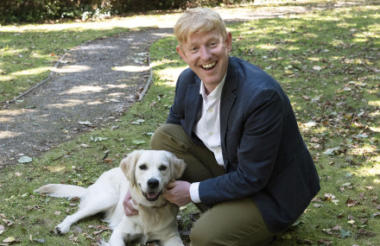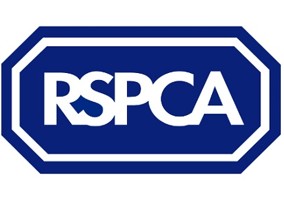The RSPCA is nearly 200 years old, but “could argue that the need for our service is actually greater than when we were established”, its chief executive, Chris Sherwood, says.
Since he joined in August 2018, RSPCA has overhauled its governance and been through a sometimes-difficult staff restructure. The charity is now ready to set out an “ambitious” forward-looking strategy, so that “no animal is left behind”.
“It's really about making sure that animal welfare, our mission, our vision, is the golden thread that goes through everything in the organisation,” he says.
The charity's big aims include reducing neglect by half, securing new powers for its inspectors, and launching a new Community Engagement Programme that will inspire one million people to get involved.
RSPCA’s vision of “a world where all animals are respected and treated with kindness and compassion” has not changed. But it has refreshed its mission, Sherwood says, to take into account the current context and challenges.
The strategy, Together for Animal Welfare, has three main pillars: rescuing animals in need, preventing neglect in the first place, and advocacy. All of these are unpinned by a recognition that the RSPCA must work collaboratively to achieve its goals.
“We are modernising and refocusing our 200-year-old charity to meet the challenges of this rapidly changing world,” Sherwood says.
However, he emphasises that it is a “marathon, not a race”, which is why the strategy covers nine-years. “It's not all going to happen overnight.”
‘Overhauling our prevention work’
The P in RSPCA stands for “prevention”, and prevention is often better than cure. By better informing people about animal welfare, RSPCA hopes to reduce neglect to companion animals (cats, dogs, guinea pigs) by 50% by 2030.
“We know most people want to get it right for animals, we know that they want to do the best by animals, but often they don't have the right information or skills,” says Sherwood.
This is where engaging with people and getting information to the right people comes in. The RSPCA wants to expand its Generation Kind programme, which launched in October 2018 and works with schools to teach children about animal welfare. By 2030 it hopes to have reached 500,000 young people.
Through a new Engagement Programme, which is still in development, the RSPCA will also work with branches and communities to build a broad coalition of one million people who support its work.
Empowering inspectors
Meanwhile, the RSPCA is seeking new powers to bring England and Wales in line with the Scotland and Northern Ireland, where inspectors have a statutory right to remove animals who have been abused.
“Currently, we have to call the police and wait for them to turn up. The police are under huge, unprecedented pressure at the moment,” he explains.
It has also created a new role in its inspectorate animal rescue office, “which is a hybrid role around collections, but also able undertake low level investigations”.
'We can’t address the challenges of animal welfare alone'
Better collaboration with others is central to how the RSPCA will deliver on its strategy.
Sherwood highlights that the RSPCA is trying to reach 900 million animals in England and Wales on around 1% of what the NHS spends looking after 67 million people.
“We can't do that alone,” Sherwood says. “We recognise that we need to work in partnership with others.”
The charity's upcoming Community Engagement Programme will be part of this.
“We can't be there for every animal who is abandoned or been abused or neglected. It's going to take all of us to make a big impact for animal welfare and to be there for animals that need us. And that's a real mindset, cultural shift, which will take place through that programme,” he says.
The RSPCA is also looking to create more formal partnerships with other organisations. An example of this would be the partnership with the Blue Cross, announced last year, to work together to reduce costs.
Building solid foundations
Before he joined the RSPCA, Sherwood was aware that one of his first tasks would be to reshape the charity’s governance. Its arrangements were outdated and cumbersome, and the Charity Commission was anxious that this be sorted out. The charity has since more than halved the size of its trustee board and implemented term limits, allowing the Commission to formally close its compliance case at the end of 2020.
What he wasn’t aware of when he joined was the scale of the financial challenges he would face. “When I walked in, I found a hole in the accounts,” he says, on discovering that in 2018 the charity was planning for a deficit of £26m.
This was eating into RSPCA's reserves at a “pace which was not sustainable”. Between 2017 and 2020, the charity’s liquid assets reduced from £146m to £89m.
So, what happened? Its income had remained relatively stable, but its cost base “spiralled”. This was largely due to a pay review in 2017 that guaranteed pay rises for staff. Employee costs went from 42% of the charity's income to 52%.
This meant new contracts were needed for employees – something that the trade union Unite campaigned forcefully against – and a restructure which saw just over 230 people made redundant.
“We didn't want to be in that position,” Sherwood says, “But I had to look as a chief executive and think that my role here and the board of trustees’ role here is to ensure that our organisation is safeguarded and sustainable into the future.”
‘We need to be prepared for the next crisis’
Those who objected to the new changes felt the charity should have continued to draw down on its reserves, but Sherwood feels that having entered the pandemic in a “financially fragile” state, the charity needed to turn the tide and “be prepared for the next crisis”.
He describes the Covid-19 pandemic as the second of two “systemic shocks” that have rocked the sector in recent years, the financial crisis of 2008 being the first.
“We all thought after the global credit crunch that we would never see anything that big in our lifetime. And now Covid has blown out of the water,” he says.
And he believes it’s probable that there is another crisis around the corner. He cites the climate emergency, an ageing population and pressure on public spending as things with the potential to trigger the next shock.
For now, he is hoping to move forward in a more positive way with the charity's trade union. RSPCA has renewed its commitment to Unite through a recognition agreement and new charter.
‘We can only do this with our people’
Sherwood describes RSPCA’s people – its staff, volunteers and branches – as “vital for us taking forward this strategy”.
As for himself, he’s been in post for two-and-a-half years, and says: “I’m not going anywhere.”
His predecessors, however, did not have a habit of sticking around for long, and this kind of turbulence leaves a mark.
“I'm now the longest serving chief exec in 10 years at the organisation,” he says. “That kind of situation is going to leave a legacy in an organisation. We are dealing with that legacy, the problems that have ensued as a result of that.
“But it's important and what's motivating me and the board and the executive is to ensure the organisation is in the best possible position to fulfil its purpose, its vision, its mission, which is about helping people to help animals.”
Generating income
RSPCA’s most recent set of annual accounts hint at plans for reform of the charity's income generation activities, and a new fundraising director, Tracy Pritchard, will join later this year.
Legacies make up about 60% of RSPCA’s income, which Sherwood says is testament to the faith the public has in the charity.
“I had a conversation recently with a couple who were leaving their entire estate to us. And that's an incredibly humbling conversation when their lives and savings and property will be left to the RSPCA because they know that the vital difference we make,” he says.
RSPCA also ran its “most successful emergency appeal we've done in living memory” last year during the pandemic, which gives it plenty to build on.
However, Sherwood says that when he thinks about encouraging people to support the RSPCA, it’s not just about donors, but about how people can help to lobby the government for better welfare standards by writing to their MPs.
'Giving voice to animals'
Indeed, the third main strand of RSPCA’s work is around advocacy, or “giving voice to animals”. Now that the UK has left the European Union, there is plenty to be done to maintain or improve welfare standards.
The RSPCA has a wish list of things it is lobbying the government for. One example is the establishment of an Animal Protection Commission as an independent public body.
Meanwhile, beyond the UK the RSPCA is looking to secure a UN resolution for animals.
Relationship with government
RSPCA worked closely with the Department for the Environment, Food and Rural Affairs to challenge scare stories about Covid-19 being spread via pets and to provide new guidance for animal owners who were self-isolating.
“I think there was that good relationship there,” Sherwood says.
However, on a broader level he feels that the difficulties the charity sector had in 2020 underscore the importance of improving relations with government.
The furlough scheme, for example, was used by the charity to a degree but was largely not suitable as much of RSPCA's rescue and animal care work actually increased during the crisis.
The difficulties in securing a bailout for charities, and how ministers saw the role or perhaps perceived that they saw the role of charities, I think raises some worrying flags for us as a sector,” he says.
New ways of working
The pandemic also required a shift in the ways that the RSPCA worked. For example, it set up "virtual home checks" so that staff could inspect the homes of people who wanted to adopt or foster an animal, without having to visit in person.
Sherwood’s own cat, Marmalade, arrived during lockdown following a virtual home check.
“He was delivered by an animal rescue officer to my home, because we couldn't have people going into our animal centres. So, we developed an innovative way to carry on rehoming,” he explains.
The RSPCA is also becoming a more digitally mature organisation, with lockdown forcing a move to home working.
“Our IT team were amazing as they moved 400 people across our offices to be home workers, including myself. And they did that in the space of 10 days,” he says.
Meanwhile, RSPCA's annual general meeting (AGM) took place virtually for the fist time. However, even before the pandemic it had held an AGM split across two sites that were linked up with video, and both ways enabled more people to take part, especially those who may not have the time or money to buy a train ticket to London.
“In the modern world, life's fast paced, people want excitement, they want interest. We've got to work harder to make our AGM more interesting and more engaging,” he says.
Related articles












